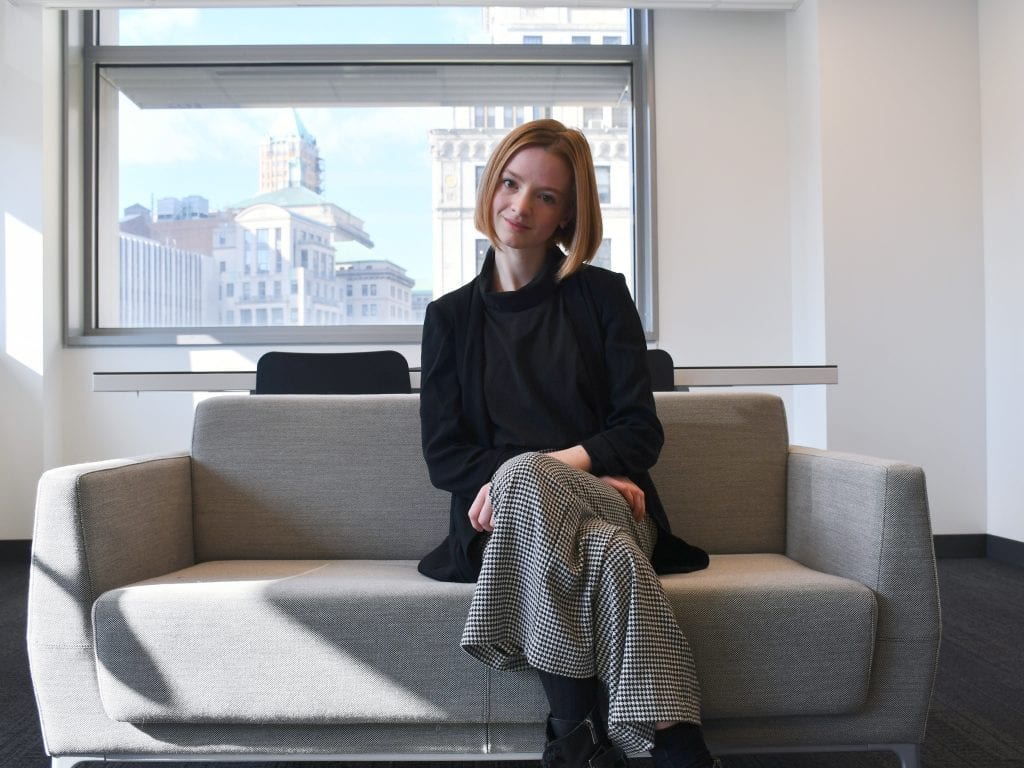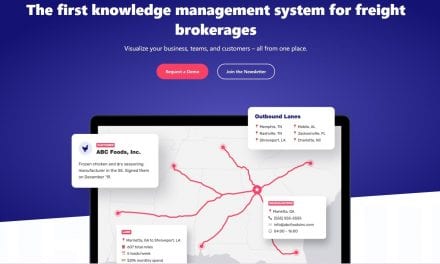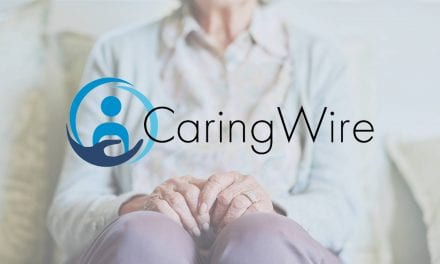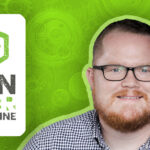There are certain spaces in society where the private sector isn’t really welcome. This is in part because of the ethical concerns raised by a business profiting from offering services geared toward serving people who have endured great suffering. One of these no-fly zones for commerce is the treatment of sexual assault survivors.
The public sector’s handling of a sexual assault survivor’s needs can vary greatly from community to community in terms of quality of care and wealth of resources available. It’s a system whose processes are being tested by Leda Health, whose mission “is to transform existing systems of sexual assault prevention, care, and justice to better serve survivors and the communities in which they live.” Hailing from Greek mythology, the name references the story of Helen of Troy’s mother Leda, who was raped by Zeus.
Leda Health Co-founder and CEO Madison Campbell says that Leda’s represents a mother-like figure with a dark story of her own, who can both protect the survivor’s right to privacy and be a symbol of hope to those affected by sexual assault.
The selection of Leda as a symbol for the company was personal for Madison, who created the company after coming to see the need for such an enterprise. While a junior in college, Madison studied abroad at Scotland’s University of Edinburgh. During her studies, she became the survivor of sexual assault, perpetrated by someone she knew.

Madison experienced a dark prism of feelings after the encounter, including a sense of powerlessness, despair, and self-blame for what transpired. “It’s part of the story of the entrepreneurship journey,” Madison tells Launch Engine. “That happening to me, I chose not to do anything when I was over there. I’m like ‘I’m an American in Scotland. You know, what do I do? How does the criminal justice system work here?’ That all really confused me and made me feel super, super out of sorts. So, I just chose to do nothing.”
Madison says that her experience as a survivor and the fact that she didn’t report her attacker —and that he may repeat his actions—is something that she’s forced to live with every day.
“Part of what I live with—and part of the reason why I started this company—is ensuring that for the rest of the generations to come after our product is out there, for anyone who feels disempowered, or doesn’t understand that system, or is too scared to talk to a doctor or go to the police, they can collect evidence,” Madison says. She explains that she didn’t feel comfortable talking about what happened until three years after the incident. Still, she realizes now that she could have done something to reclaim her sense of power.
Madison’s story is one that has resonated with a lot of people. Outside of those directly affected by sexual assault, there are people whose lives have been impacted by the ripple effect of such crimes. Co-founder and CTO of Leda Health Liesel Vaidya tells Launch Engine that she is originally from Kathmandu, Nepal. “I came here about six years ago for college,” she says. “Just growing up in Nepal and having a very humble background, I saw as a female what growing up in a developing country looks like. Our neighboring country was India and sexual assault in general and harassment in developing countries is rampant.”

Regrettably, the terrible consequences of this reality were on full display for Liesel at a young age. Liesel says that before her arrival in the United States, she volunteered at a shelter that rescued trafficked women from villages. She spent a lot of one-on-one time with survivors of sexual assault, whose ages ranged from eight to 50 years old. This experience was never forgotten.
Fast forward. Following college and her arrival in the U.S., Liesel—whose background is in computer science and software engineering—started working with Madison Campbell as a technical project manager at another company, Iyanu. After developing a bond at work, Madison pitched Liesel the idea of what was then the MeToo Kits. Liesel always wanted to do something impactful with her skill sets, so the decision to help Madison was an easy one.
Madison says, “I knew Liesel was secretly brilliant.” She adds that there was business chemistry between the two, as Madison considers herself an outspoken person who was looking for a partner who had a no-nonsense honesty that would be needed to get Leda Health off the ground.
Liesel shares that the pitch came around over a weekend discussion that coincided with the height of the #MeToo movement and the growth in popularity of DNA testing kits for genetic analysis. Referring to the methodology of companies like 23andMe, Liesel says, “To us, it was just like, ‘Hey! If you repurpose the same thing for sexual assault, you can actually make this happen.’”
After that weekend, Madison and Liesel came up with what would be Leda Health’s primary product, a DIY rape kit that lets survivors of sexual violence preserve evidence during the 24-48 hour window of collection so that the evidence may be presented to authorities at a later date. Sometimes referred to as “rape kits,” these kits are instrumental in putting perpetrators of sexual violence in jail. They began researching how they could revise and upgrade such rape kits and had discussions with various stakeholders in the matter of sexual assault, including survivors of such abuse and prosecutors.
Liesel says that while relatively recent advances in technology have made this possible, no one has dared to provide an at-home means for evidence collection after sexual assault. She adds that the more they researched options that survivors have in the U.S. for reporting sexual assault, the more problems that they found within the system.
Madison and Liesel found themselves at a one-of-a-kind disadvantage, as the concept of their business plus their demographics discouraged a lot of venture capitalists from giving honest feedback.
Madison shares, “We like people who tell us straight: ‘Hey, I don’t think that this is going to work.’ Or, ‘I don’t think this is going to work, but if you do this, I think it will work.’”

Liesel says it “comes down to building really simple, easy-to-use tools that are accessible, private… and survivor-centric.” The ease for and focus on the consumer are part of the company’s means of addressing what they call “the big statistic”: 3 out of 4 sexual assaults go unreported.
There are roadblocks with the public sector model of rape kit testing. According to Liesel, those that do report their sexual assault have to have physical evidence gathered and preserved, using items provided in a rape kit (or sexual assault evidence collection kit; SAECK). These kits are currently only provided by government agencies to certain hospitals, and according to Leda Health’s data, and less than 0.03 percent of nurses are actually certified to do the rape kit exams. There is another point of discomfort that often follows after such an unthinkable experience. Liesel says that many of those who come to a hospital after enduring a rape dread the idea of another person touching them. Leda Health believes that the survivor’s feelings must be taken into consideration.
There are also legal considerations for going to a hospital to have physical evidence gathered and preserved. Since survivors are being provided a free service by the government, anything revealed by the survivor during the visit can be used against them in a court of law. This includes details of other sexual partners and whether or not the person is seeing a therapist. “All of these things have been revealed and used by the defense against the survivors to discredit them,” Madison explains. “We’ve seen this happen more times than we can count.” Conversely, the Leda Health kit option can be administered privately at home, with the data being immediately preserved and encrypted.
Logistics brings yet another obstacle to the public sector rape kit exams. Liesel says that the government rape kit is a 20 part process. She claims that many items collected by the kit are collected just to be thorough, and aren’t going to be tested. What’s worse, Liesel tells Launch Engine that there’s a national problem of the backlog of rape kits sitting on shelves for years and not being used, partly because rape kit testing is expensive. The Leda Health self-administered rape kits don’t have testing components that would make time or storage environment a factor (e.g., collection of urine samples).

Liesel sees Leda Health as a monopoly-breaker for options available to sexual assault survivors. She says that if the public option were run like a business, the consumer using the products and services of rape kits would go beyond the 10 to 30 percent of survivors currently reporting their assaults.
However honorable Leda Health’s mission may seem, it’s a company with its critics. A Vox article discussed the product in 2019, with part of the headline reading “Experts say it’s a terrible idea.” That same month, a BuzzFeed News article outlined Madison’s vow to fight law enforcement demands that she stop advertising the MeToo rape kits, with attorneys general from New York and Michigan sending Leda Health cease-and-desist letters. The Campus Advocacy & Prevention Professionals Association issued a statement on the MeToo Kits, saying, “[MeToo] Kits are not the solution, and they could be harmful.”
But what about the supporters of such an option? Mother Jones and Refinery29 detail two separate use cases (albeit one article partially referencing the other) of Leda Health’s kits during COVID-19. Liesel says that the use of the Leda Health kits can take as little as 15 minutes, while the hospital-administered exams can take between four to six hours.
The criticisms leveled by those in favor and those against the company’s goals seem to have helped. In addition to a re-launch tentatively scheduled for 2021, Leda Health has also expanded its portfolio of services and is presently building an encrypted, blockchain-enabled, HIPPA-compliant app to work with the physical kits. Liesel says that collected data is time-stamped, and chain-of-custody is maintained through every step of the process. Outside of the exam process, Leda Health has partnered with a number of organizations, including both Plan B to provide emergency contraceptives, an STI testing company, a to-be-announced corporate partner to help them make their products immediately available, and several universities—since they want the organizations to pay for the kits instead of the individual survivors.
To expedite the exam process, Leda Health will also be able to test the kits in less than thirty days, which flies in the face of the two-year average wait time that Liesel cites for typical rape kits. Liesel says, “What we are trying to do right now is do the time-sensitive thing. And after that, if you’re not ready, you can throw it under your bed.”
For Liesel, progress in how society treats sexual assaults is long overdue. For her, Leda Health is part of that badly-needed progress. She says, “What I believe in as a… technologist, is that you need to solve big problems with simple, easy-to-use solutions. And when I look at sexual assault and the resources, tools, and options available, I think of this as this huge problem that hasn’t really been tackled.”
The kits from Leda Health can be used by any individual who is a survivor of sexual assault. For more information about Leda Health and the chance to join their private beta survivor support program, be sure to visit their website and social media.








